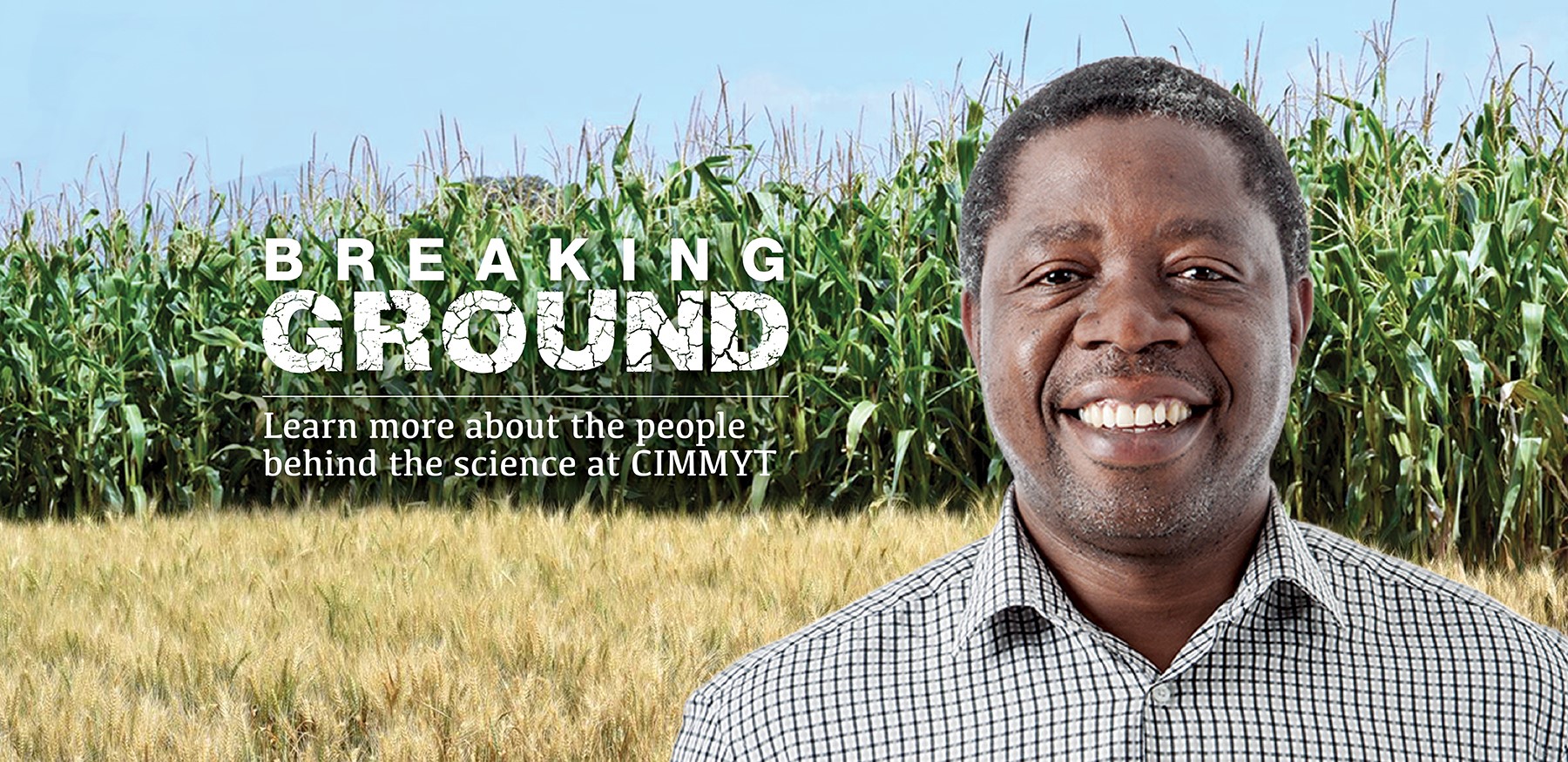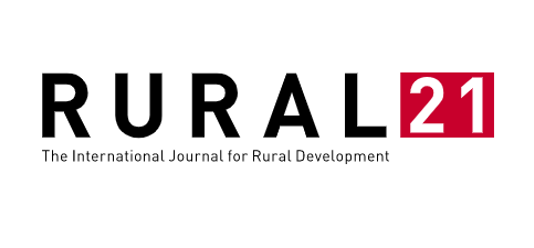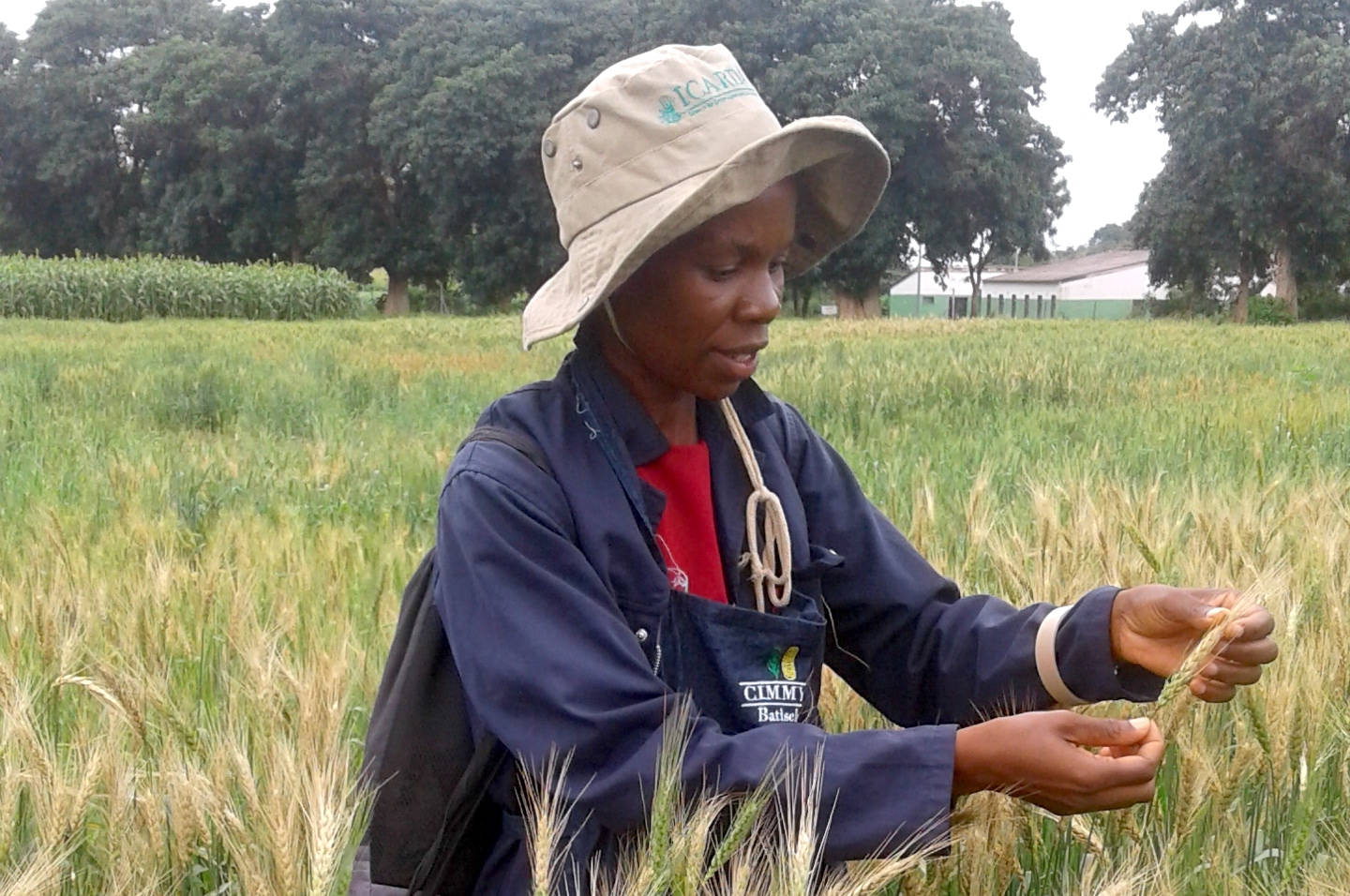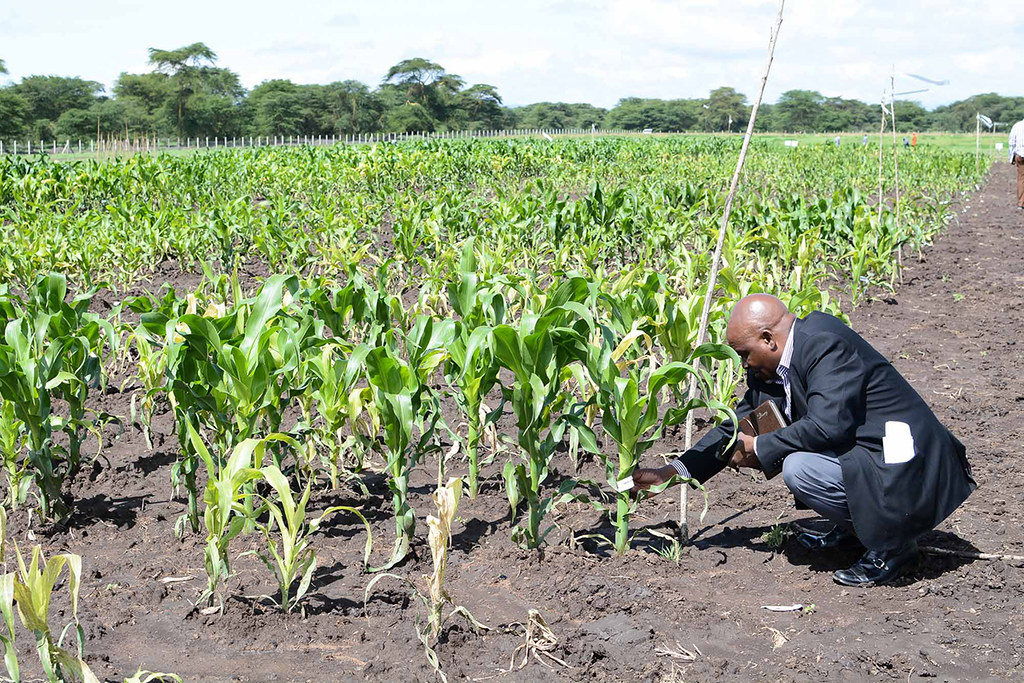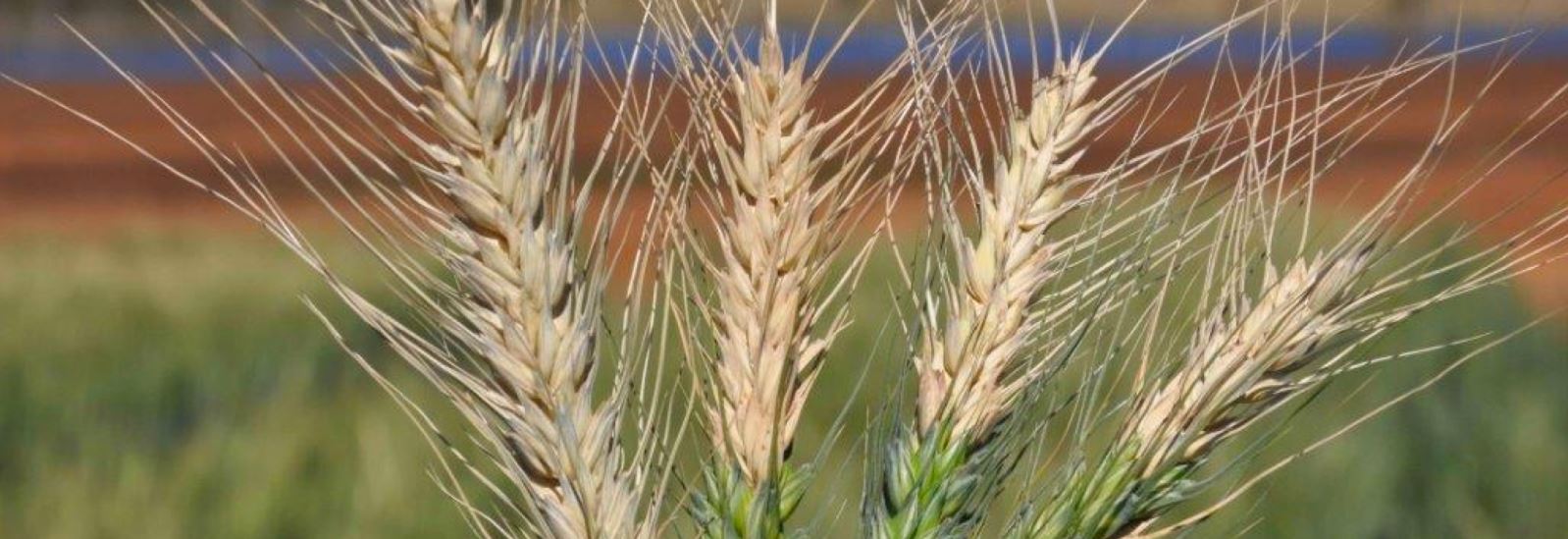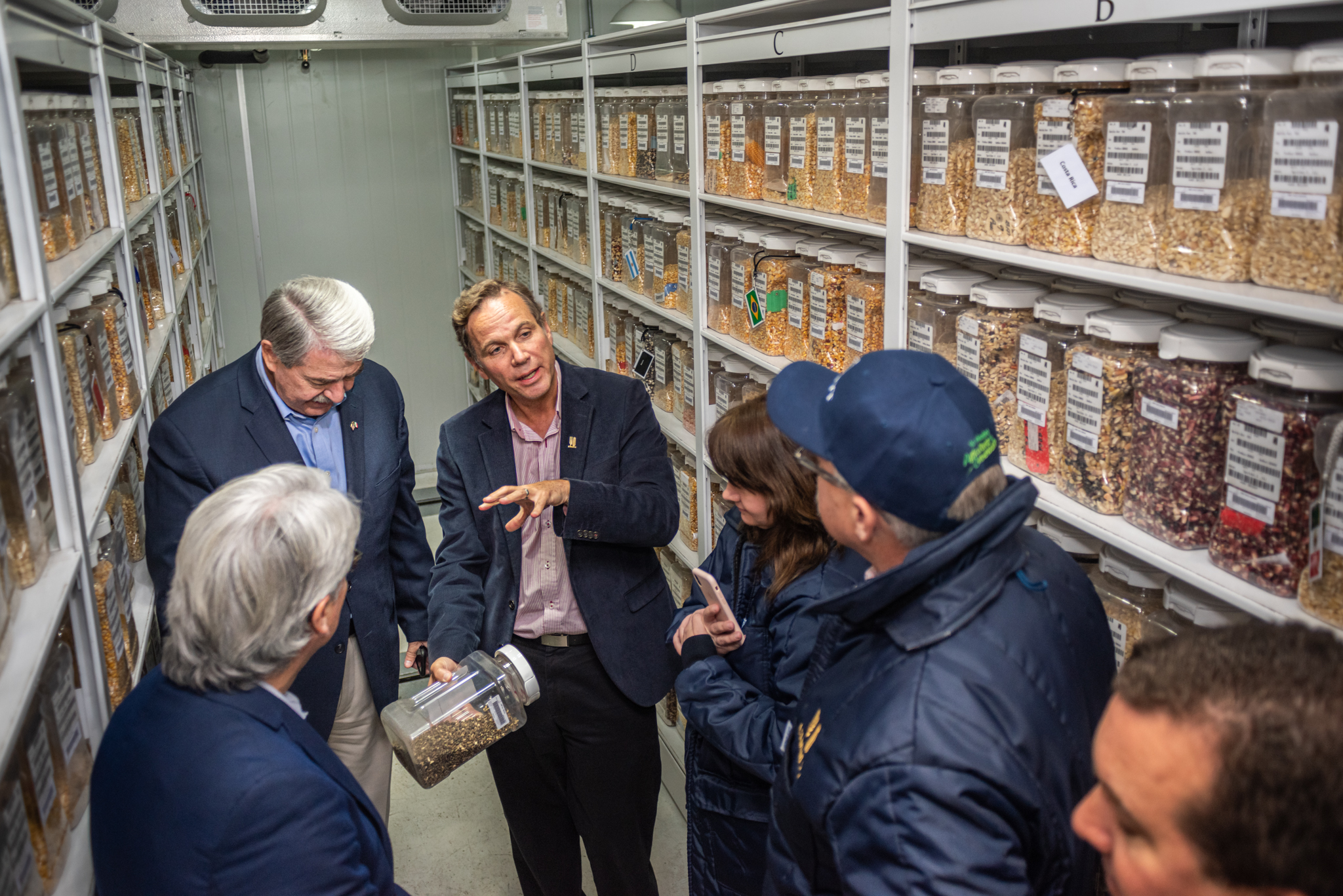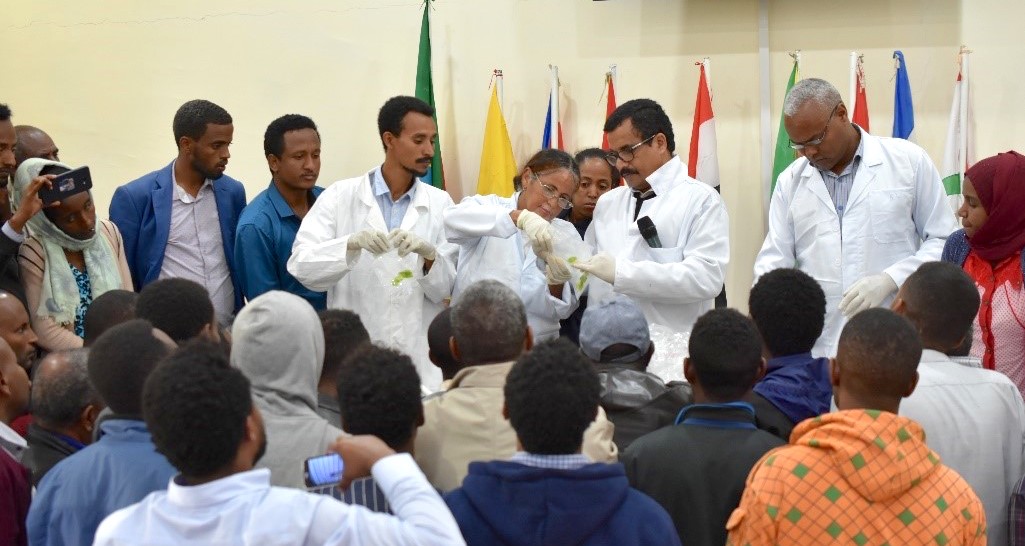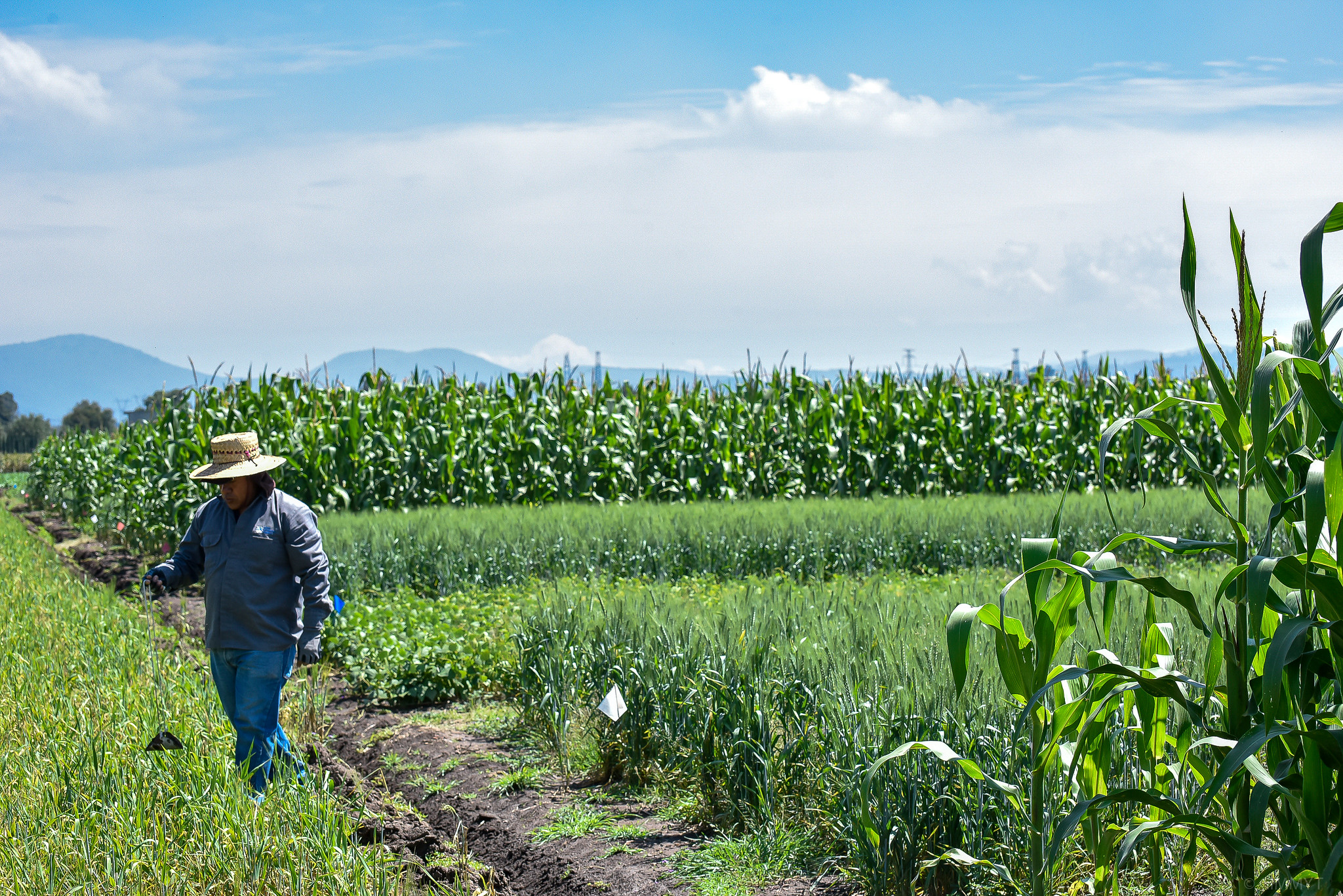United States Department of Agriculture (USDA)
Breaking Ground: Isaiah Nyagumbo advances climate-smart technologies to improve smallholder farming systems
 Climate adaptation and mitigation
Climate adaptation and mitigation
Systems agronomist transforms farmers’ livelihoods through improved crop performance and soil health, promoting sustainable techniques that mitigate climate change effects.
Wheat blast has made the intercontinental jump to Africa
 Environmental health and biodiversity
Environmental health and biodiversity
Source: Rural 21 (9 Oct 2020)
Wheat blast poses a serious threat to rain-fed wheat production in Zambia and raises the alarm for surrounding regions and countries on the African continent with similar environmental conditions.
Wheat blast has made the intercontinental jump to Africa
 Nutrition, health and food security
Nutrition, health and food security
Researchers in Zambia confirm the arrival of this devastating fungal disease to the African continent.
Growers issued yellow rust warning
 Environmental health and biodiversity
Environmental health and biodiversity
Source: Dawn (6 Feb 2020)
CIMMYT warns wheat-growing farmers in Pakistan to watch for yellow rust disease.
What is wheat blast?
 Nutrition, health and food security
Nutrition, health and food security
Wheat blast is one of the most fearsome and intractable wheat diseases in recent decades. It spreads through infected seeds, crop residues as well as by spores that can travel long distances in the air, posing a major threat to wheat production in tropical areas.
US Under Secretary of Agriculture ready for further cooperation with CIMMYT
 Nutrition, health and food security
Nutrition, health and food security
Ted McKinney and representatives from state agriculture departments learn about relevant maize and wheat research during visit to global headquarters in Mexico.
How a disease without borders was contained
 Nutrition, health and food security
Nutrition, health and food security
Experts reflect on the successful efforts to limit the spread of maize lethal necrosis across eastern and southern Africa.
Identifying and Developing Improved Tropical Maize Germplasm with Native Resistance to Fall Armyworm in Sub-Saharan Africa
 Nutrition, health and food security
Nutrition, health and food security
Wheat blast screening and surveillance training in Bangladesh
 Capacity development
Capacity development
Workshop participants learned how to use the latest in technology to identify and keep track of the deadly Wheat Blast disease.
Study reveals diversity “blueprint” to help maize crops adapt to changing climates
 Climate adaptation and mitigation
Climate adaptation and mitigation
Scientists unlock evolutionary secrets of landraces through a study of allelic diversity, revealing more about the genetic basis of flowering time and how maize adapts to variable environments.
Pakistan marks Borlaug’s 100th birthday with commemorative stamp
Pakistan’s National Philatelic Bureau issued a commemorative postage stamp to honor the 100th birthday, last 25 March, of late wheat scientist and Nobel Peace Laureate, Dr. Norman E. Borlaug.
Updated Web Wheat Atlas 3.0 prioritizes user experience
 Capacity development
Capacity development
Whether you are a scientist, a researcher or simply interested in learning more about the vital staple crop that provides 20 percent of the world’s calories, the Wheat Atlas can help.
